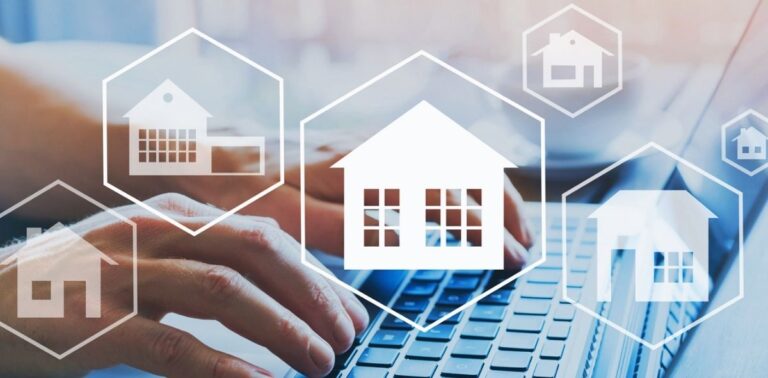The number of new cyber-attacks is rapidly growing, practically on a daily basis. However, there are common cyber threats that are used for breaching the private data of real estate businesses within property management software solutions.
To say a few rods about property management systems, it is a real estate software solution that collects all information about properties, landlords, tenants, and more. So all real business data is stored within a single database that needs to be highly secured.
Cybersecurity risks for property management software (PMS)
Due to the recent research of Gregory Stein, Certified Information Privacy Professional (CIPP/US), we have identified the next cybersecurity risks for property management systems today.
Business Email Compromise (BEC)
Business email compromise cyberattack is considered to be one of the easy and common ways to steal not only sensitive information but also huge sums of money. Scammers can hide behind famous or known to you vendors who you are going to make a deal with. They usually send scam emails providing nonexistent bank account details to force you for particular services or property purchases, for example. The risk of sending your money to the wrong partners can cost your business several million dollars of loss.
A business email compromise (BEC) is an attack that deceptively convinces businesses to wire funds to criminal bank accounts by pretending to be business counterparties, such as vendors or real estate sellers.
Ransomware OS
This type of hacker attack is direct money extortion from real estate companies via sending malicious emails. How it works – one of your employees gets a deleterious email that looks like common mail from partners or vendors. As soon as the email is opened, all data within secure property management software is closed until you will pay money to criminals to open it again.
Locked data eliminates the ability to perform daily operations and actually run the business, which can lead to extensive income and vital information losses.
Cloud computing
Cloud-based software is considered to be more secure than saving and managing data on local servers. But is it as reliable as we all used to think? Now real estate companies can be not the main goal for cybercriminals. As they are hunting private information, they are likely to find ways to invade huge cloud databases to get access to several companies simultaneously. In such cases, real estate companies and their sensitive data remain completely unprotected and vulnerable.
After watching the video below, you will widen your understanding and importance of evaluating cybersecurity risks in the real estate business.
Tech trends in real estate cybersecurity
Real estate businesses struggle with an extensive number of constant hacker attacks to steal the private data about properties, tenants, landlords ( bank accounts, credit cards, addresses, and so on).
The recent Deloitte research provides the top technologies trends used for enhancing cybersecurity and physical security for the real estate industry you can familiarize with below.
We are providing you with the precise solutions for your property management system that will help you prevent cyberattacks. Here below you can get acquainted with features and practices that should be integrated into your property management software in order to ensure complete data security. And our experts know how to implement all these practices in your real estate software system and help you figure out what more features your current solution requires to scale.
Features for PMS to ensure real estate cybersecurity
In addition to implementing cybersecurity practices into your property management system, we have collected the core features you and your staff can perform on your own without the help of your development partner.
1. Data encryption
Property management systems collect and store all data related to properties, tenants, property wonders, real estate agents, etc. All documents are saved in one place. It is simultaneously convenient providing quick data access as well as has the potential to be lost or stolen. Thus, you should consider all potential threads beforehand and transmit and save online encrypted data to avoid its leakage.
Additionally, the copies are recommended to save not only with your property management system but of the platform in a safe environment. Cloud-based property management solutions eliminate the need for copying your data as all information is stored and saved in the cloud server.
2. Strong passwords
Creating strong passwords is obvious even under the condition of two-factor system authentication. Each user registered within your real estate management software should be limited in creating weak passwords meaning they will not be able to log in if the password is short and unreliable.
As the second factor of authentication, you can set different levels of access depending on the user type, sending them approval to a mobile phone number, email, mobile app, etc. The multi-factor authorization will limit the system access even for hackers knowing the password.
3. Ensure device protection
The property management system can be hacked not only via recognizing passwords but also by sending malware and phishing emails to the devices where the system is in active use or installed.
It is recommended to install the high-quality antivirus to all of the devices where the system can be accessible to move all viruses and unknown files to trach before opening them by the users. It helps provide a secure network within your property management software and prevent real estate cybersecurity attacks before they harm your business.
4. Manage user permissions
The property management platform is capable of uniting property owners (landlords), tenants or workers within a particular building, and real estate agents, the combination of access users depend on the business specifics and what properties should be managed. System supervisors should have the ability to set different levels of access for different users, also add new users, or delete deactivated profiles.
As not all company workers or system users can be 100% reliable in dealing with secure information, this feature prevents data thefts within the company. In addition, the platform alerts supervisors about the try of accessing the system by unauthorized users in order to log them out or block them in time.
5. Explore modern types of cyber attacks
Nowadays businesses using software solutions have already researched the possible cyberattacks and succeeded in learning how to cope with them. However, cybercriminals continue improving their skills creating new kinds of cyberattacks to breach data that may have no solutions yet. Thus, you will know what your company should be ready for and will have time to implement prevention technologies to avoid getting into potential scams and receiving malware.
How to lock down your PMS (cybersecurity tips)
Before implementing new security measures into your property management system, initially, it is vital to learn all other devices it is connected with as its number can be much more extensive than you expect. The list of connected platforms and devices may include:
- Hardware – access control solutions responsible for controlling the physical access to the building like smart door locks, video cameras, motion sensors, and so on, connecting your system to a cloud database;
- Database access – each allowed access to sensitive data that your business prosperity depends on should be strictly managed to deny access to the system users and vendors who are not allowed to see and change it;
- Consider the work of the external system that contains your private business data.
Top 5 data security protection practices
As the core cybersecurity risks are determined, then it is time to act and implement data security protection practices for your property management system. These are:
- Implementation of access control solutions that provide multi-factor authentication for users ( your workers and vendors) to access sensitive data and PMS limiting their interaction with the property management system meaning denying access to those apps and access control hardware that is not directly related to their duties and responsibilities;
- Encryption of private data considering PCI DSS data security compliance for its secure transmission from vendors, connected and cloud-based software system to your property management system securely and correctly;
- Zero-trust data security approach allows you to manage all property management system access via advanced user authorization on all related systems and devices to your database watching their activities in the system and alerting about unauthorized access or malicious actions not related to their job;
- Create a cybersecurity policy to train your employees no the common and new real estate cybersecurity attacks describing all of the possible threats and how to react to them; fishing ( sending malicious email) remains one of the easiest ways to reach each employee within a particular real estate company to spread viruses from one device to all uses in the company;
- Ensure additional data protection with your cloud provider discussing the action if the cloud will be hacked and how you can protect your sensitive data anyway despite the cloud receiving the cyber attack.
Checklist for real estate cybersecurity by Altamira
The implementation of cybersecurity practices starts from the analysis of project requirements. Our team should precisely know what user information has to remain private and secure within the system, what information will be in shared access. During the specification stage, we also can encounter controllers that all have their specific features like encryption, cooperation with specific service providers, extra agreements with service vendors, or the use of a certain range of services.
Therefore, here is the list of what cybersecurity practices can be applied:
- Strict password policy that requires a particular number of symbols and needs for specific, symbols, regular passwords changes;
- MFA (multi-factor authentication) is obliged;
- SSLHTTPS is must use;
- Limited sessions from users from different citiescountries based on governmental specifics or location of the servers in particular regions (for example, due to GDPR regulation, all data of users from Europe has to be stored and saved in European regions);
- Server-side validation of all input boxes and contact forms;
- CSRF-validation;
- XSS-validation;
- AML & KYC for finances;
- No saved passwords in shared access;
- Encryption of data within a database (the complete or partial encryption);
- Usage of the latest LTE versions of OS, tools, and libraries to support the latest updates of security and elimination of zero-day vulnerabilities;
- ORM usage to avoid SQL injection;
- Usage of WAF on service providers to prevent DDoS and bots;
- Secure cookie;
- Application of VPS on service providers to prevent access to private services;
- Utilization of BCDR plans, particular backups.
FAQ
To sum up
Due to our extensive experience in building custom business apps, we completely know the value and importance of cybersecurity measures and a precise plan of action in case of encountering real estate cybersecurity attacks.
Altamira experts evaluate the potential risks and threats for each type of software solution, selecting suitable security checklists and practices to explore the latest cyber-attacks and prevent data breaches within your property management system. We ensure the secure and transparent development process following the industry official regulations and compliance related to data security.






